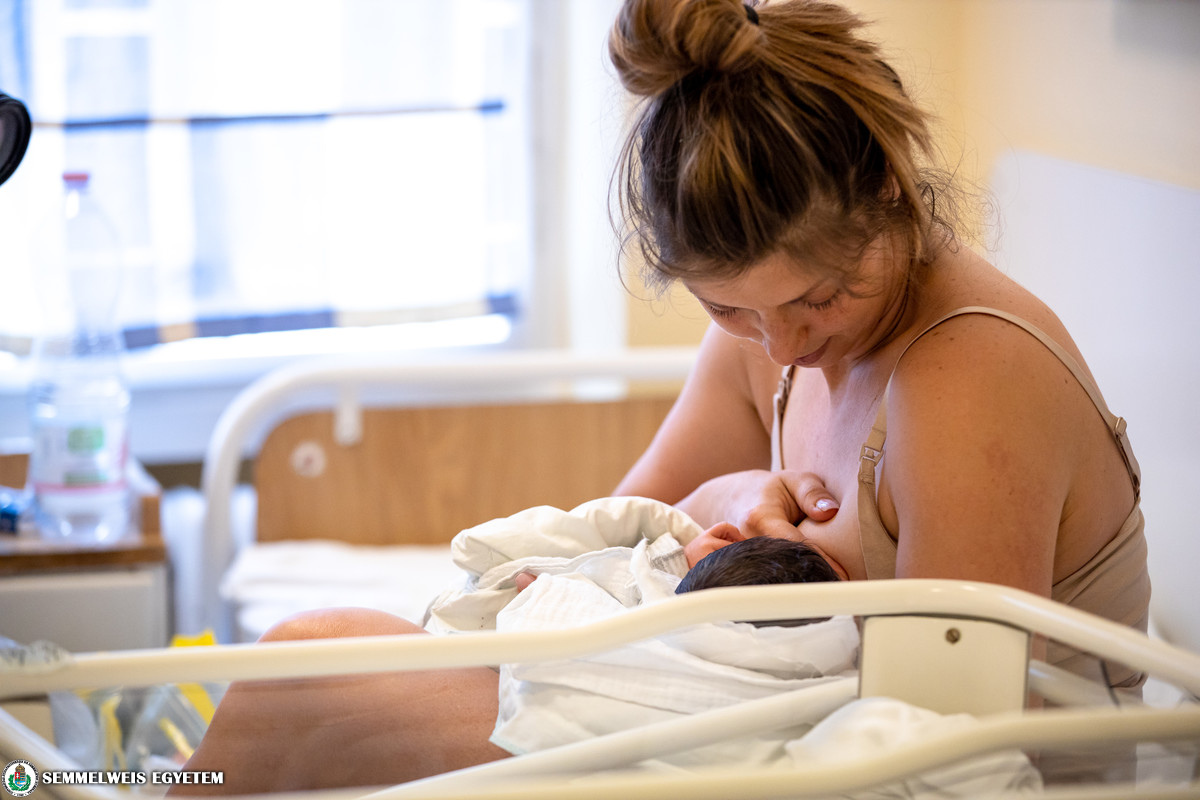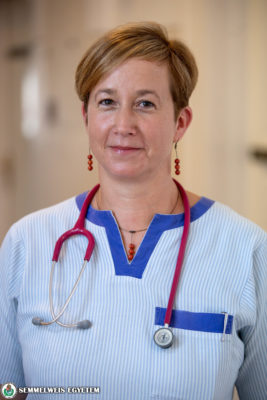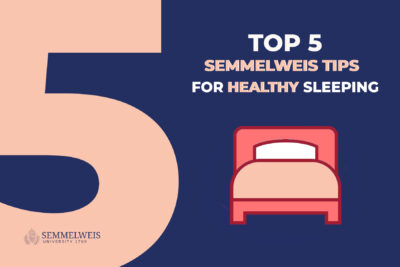Breastfeeding is the most essential and best form of nutrition for newborns and babies. If there is enough breastmilk, no other food is needed in the first 6 months of life. Colostrum, the first few drops of breastmilk, is like the first vaccination: it transports immune substances, white blood cells and enzymes to the baby’s body.
“If colostrum is the first thing they receive after birth, it forms a protective layer in their intestines which creates a strong line of defence against viral and bacterial infections.”, said Dr. Lilla Sassi, neonatologist at Semmelweis University’s Department of Obstetrics and Gynaecology on the occasion of World Breastfeeding Day.
As babies grow, these substances play an important role in further defence. In this way, antibodies that are formed in the mother in response to various diseases will also be passed on to the baby, who will be thus protected from these diseases. In addition, breastfeeding is the ideal solution for physical, psychological and fine motor development.
Those, who were breastfed babies will become more protected against diseases as adults. This proves the long-term benefits of breastfeeding. They are also less likely to develop obesity and high cholesterol levels in old age and will have lower blood pressure.
After giving birth, all mothers will start to produce milk. If, for some reason the milk is not enough for the newborn, there are solutions. It is a common, temporary problem that the mother uses a bad technique to breastfeed the baby. The breast may get sore and cause pain, which could create a psychological barrier in the mother against breastfeeding. In such cases providing appropriate information can be the most helpful.
 In the past, breastfeeding every three hours was considered appropriate, however, recently a more modern approach, on-demand breastfeeding has been more widely accepted. In this case, the baby can breastfeed as frequently and as long as he wants. Obviously, mothers should seek to create a well-balanced environment because if there are more children in the family, it is not always possible to focus on the newborn. There is no need to despair even if the mother is unable to satisfy all needs of the baby as the baby has the ability to compensate and is able to adapt to the circumstances.
In the past, breastfeeding every three hours was considered appropriate, however, recently a more modern approach, on-demand breastfeeding has been more widely accepted. In this case, the baby can breastfeed as frequently and as long as he wants. Obviously, mothers should seek to create a well-balanced environment because if there are more children in the family, it is not always possible to focus on the newborn. There is no need to despair even if the mother is unable to satisfy all needs of the baby as the baby has the ability to compensate and is able to adapt to the circumstances.
“If there is not enough milk, skilled breastfeeding support can help get through this difficult period, breastfeeding problems can be solved and the amount of milk can be increased. If, in spite of all this, there is still not enough breastmilk, introducing additional feedings with formula can provide the babies with adequate and sufficient nutrients.”, said Dr. Lilla Sassi.
Promoting breastfeeding is important, because the ratio of exclusively breastfed babies has dropped from 57 percent to 51 percent. By the age of six months only 34 percent of the infants are exclusively breastfed and the proportion of infants receiving formula has increased from 51 percent to 55 percent.
Recently, more and more community spaces have provided opportunities for breastfeeding. It can be done discreetly and intimately in almost any circumstances without the mother being too conspicuous. In most of the times it depends on the mother’s attitude.
Based on the current recommendations, mothers infected with the coronavirus are also advised to breastfeed their newborns with increased protection. The virus does not spread with breastmilk and if the conditions of the mother permit, breastfeeding with a face mask has more benefits than disadvantages.
András Beck
Photo: Attila Kovács – Semmelweis University
Translation: Ágnes Raubinek


